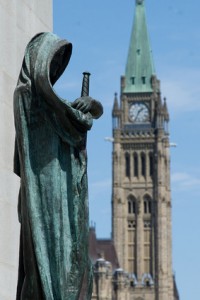This is definitely a positive step, especially because Saskatoon is a smaller city.
The City of Saskatoon’s adult service licence is now officially in place after city council approved a zoning plan that covers where escort agencies and massage parlours can locate.
The contentious licence, which was approved in March, came into effect July 1, but was delayed until council made a decision Wednesday outlining where such adult service agencies are allowed to set up shop.
After a public hearing, council unanimously approved a city report that allows legal adult service agencies to set up in industrial areas.
The businesses won’t be allowed within a city block of parks, schools and homes under the bylaw. The businesses will be required to set up at least one block from each other to avoid “clustering.” Individual escorts can set up as a home-based business, but can’t have clients into the home and can have a maximum of one employee.
The buffer will allow adult service agencies to locate in industrial areas.
Alan Wallace, planning and development manager for the city, said the 160-metre or one-block buffer would limit the options to a few blocks of each industrial area inside the city.
Saskatoon has a number of smaller industrial areas inside the city, including Sutherland, Mayfair and King George.
If the buffer was increased to 500 metres, the adult service businesses would only be able to locate in the north industrial area, Wallace said.
“By increasing (the buffer) you start to squeeze out any potential location options,” Wallace said. “We think a 160-metre separation is adequate while maintaining a suitable range of locations without restricting adult services to one area of the city.”
The proposal received support from the local chapter of REAL Women of Canada, but with a note of caution.
“For the zoning bylaw to be effective, it is crucial police maintain a constant presence where adult services locate to prevent locations from becoming a (hive) for criminal activities,” said Cecilia Forsyth, president of the Saskatchewan chapter of the organization.
“These illegal activities will flourish in isolated areas unless a strong police presence is maintained there. There has to be regular foot patrols rather than intermittent (vehicle patrols). It must be clearly established that adult service zones are under the strict control of the police so as to deter criminal elements from taking over these areas.”
Ty Mackenzie, pastor at Lawson Heights Alliance Church, questioned licensing such businesses and advocated a Nordic model, which targets johns rather than sex trade workers.
“As men we need to stand up in every walk of life and say it is not acceptable to allow women to be purchased,” Mackenzie said.
Council approved licences for adult service agencies and individual escorts earlier this year in order to give police more tools to check up on the age and circumstances of those involved and work on prevention.
Prostitution is not a criminal offence in Canada, although certain aspects of it are illegal, such as living off the avails of prostitution, keeping a common bawdy house and communicating in a public place for the purpose of prostitution.
The bylaw defines an adult service as “any service of an adult nature appealing to or designed to appeal to erotic or sexual appetites or inclinations.”
An adult service agency licence will cost $500 and an additional $200 for each renewal. The licence will cost $250, plus $100 for each renewal, for an adult service agency operated by an individual, adult service performers – the people actually providing the adult service to another person – and adult service workers, such as drivers and receptionists.
To get a licence under the new bylaw, a person will be required to provide government-issued photo identification proving he or she is over the age of 18, supply proof of citizenship or residency status and undergo a criminal record check.
The city will not enforce the bylaw right away, giving a grace period for escorts, erotic dancers and other workers to get a licence.
[email protected]
Read more: http://www.thestarphoenix.com/Adult+services+zoning+gets+ahead/6956223/story.html#ixzz22uP7m8lE
Unfortunately once again they “assume” that just because there’s escorts & escort agencies, there is going to always be criminal activity.
There is crime everywhere, if it was ONLY seen where escorts & escort agencies congregate, there would be no crime anywhere else.
Once again they are confusing pimps & hookers with escorts & escort agency owners & unfortunately society does the same thing, especially since there are too many pimps & hookers who “claim” they are escort service owners & escorts.
Michelle



